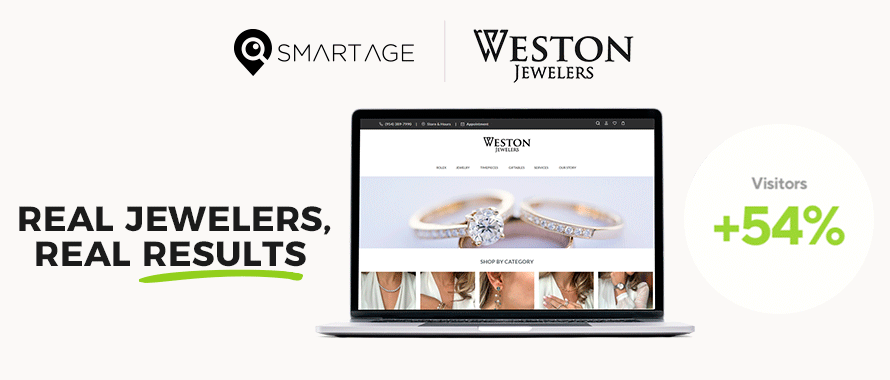Jewelry ECOMM Tech
Shopify Vs. Wordpress - What’s Better For Jewelry Websites? April 14, 2020 (0 comments)
 It took a very long time, but the coronavirus has actually caused many jewelers to finally realize they need an ecommerce website.
If you’re a jeweler, you’ve likely heard the debate about what the “best” website platform is. The short answer, in my opinion, is that the website platform matters way less than your marketing does. But we’ll get to that soon.
However, there are definitely benefits to choosing a reliable, easy to use website platform.
There are two main ecommerce platforms on the web today - Shopify and WooCommerce (which is Wordpress).
Magento is the third big ecommerce platform, but this is often a huge, complex solution that is unnecessary for all but the largest of businesses (usually a headache). So I don't really recommend them ever.
This article will hopefully help you make an educated decision between Wordpress and Shopify.
It took a very long time, but the coronavirus has actually caused many jewelers to finally realize they need an ecommerce website.
If you’re a jeweler, you’ve likely heard the debate about what the “best” website platform is. The short answer, in my opinion, is that the website platform matters way less than your marketing does. But we’ll get to that soon.
However, there are definitely benefits to choosing a reliable, easy to use website platform.
There are two main ecommerce platforms on the web today - Shopify and WooCommerce (which is Wordpress).
Magento is the third big ecommerce platform, but this is often a huge, complex solution that is unnecessary for all but the largest of businesses (usually a headache). So I don't really recommend them ever.
This article will hopefully help you make an educated decision between Wordpress and Shopify.


